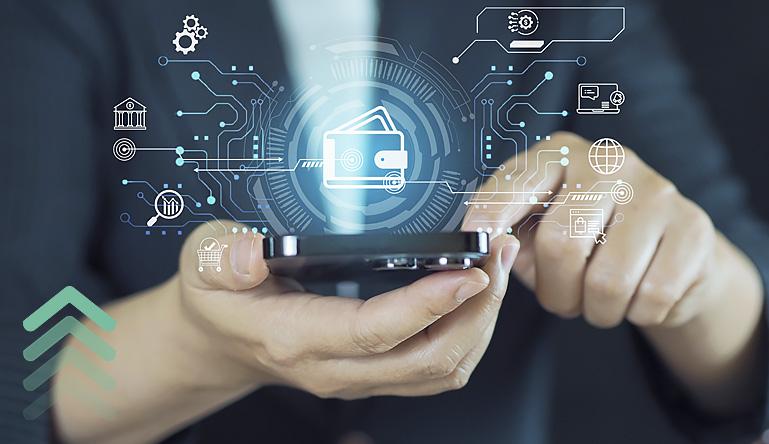-
 Vice President, Payments Product Manager, Catalis
Vice President, Payments Product Manager, CatalisExperienced fintech leader focused on secure, citizen-centric payment solutions to help government agencies streamline operations.
View all posts
Why Government Entities Should Embrace Modern Payment Methods
For years, government agencies have worked to balance operational efficiency with citizen service. But as consumer expectations shift rapidly in the digital age, the need for modern, convenient payment options has never been more urgent. One of the most impactful upgrades governments can make today is adopting digital wallets.
From Apple Pay and Google Pay to PayPal and Venmo, digital wallets are now a daily part of how people shop, send money, and manage finances. Government entities that embrace these technologies can unlock new levels of convenience, improve revenue collection, and strengthen citizen trust—all while streamlining operations behind the scenes.
What Are Digital Wallets?
Digital wallets are secure, electronic platforms that store payment information—like credit cards, debit cards, and even bank accounts—on a user’s mobile device or computer. These tools allow individuals to make fast, contactless payments online or in person, without the need to enter payment information repeatedly.
Popular digital wallets include:
- Apple Pay
- PayPal
- Venmo
- Google Pay
- Samsung Pay
These platforms have transformed how consumers pay for goods and services. Now, they’re also reshaping expectations for public-sector interactions.
The Shift in Citizen Expectations
Today’s constituents aren’t comparing government services to each other—they’re comparing them to the experiences they have with Amazon, Uber, and their banking apps. When the private sector offers real-time payments, instant receipts, and multiple payment options, citizens expect the same from their local, state, and federal agencies.
According to a Visa U.S. Consumer Survey, 34% of Americans reported they expect to use digital wallets more after the pandemic than before. That number continues to grow, especially among younger generations. Offering digital wallet options is no longer a nice-to-have—it’s becoming a must-have for modern governance.
Why Digital Wallets Matter for Government Payments
Increased On-Time Payments
Offering more flexible and convenient payment methods removes friction from the process. Citizens are far more likely to pay their taxes, utility bills, fines, or fees on time if they can do so quickly and easily using a payment method they trust.
Digital wallets reduce drop-off rates during checkout by eliminating the need to enter card details. One tap or face scan, and the payment is complete. It’s fast, intuitive, and frictionless—which leads to higher compliance and fewer late payments.
Improved Cash Flow for Agencies
With traditional payments like mailed checks or manual ACH processing, agencies often wait days—or even weeks—for payments to settle. Digital wallet transactions, on the other hand, are processed in real time.
Faster payments mean improved cash flow, better revenue forecasting, and less time spent tracking down delinquencies. When governments collect payments faster, they can reinvest in their communities sooner.
Enhanced Security and Fraud Protection
Digital wallets are often more secure than traditional payment methods. They use encryption, tokenization, and biometric verification to protect users’ financial information. In fact, payment data is never shared with the merchant—only a one-time token is used for the transaction.
For government agencies, this means:
- Fewer chargebacks and fraudulent transactions
- Reduced risk of data breaches
- Greater peace of mind for both staff and constituents
Implementing digital wallets also helps agencies remain compliant with stringent industry standards like PCI-DSS, ensuring cardholder data remains protected throughout the transaction lifecycle.
Mobile-First, Citizen-Centric Experience
Americans are mobile-first. Whether it’s scheduling an appointment, checking court dates, or paying bills—people want to do it on their phones.
Digital wallets align with this mobile lifestyle, allowing citizens to make payments from anywhere, at any time. When paired with mobile-optimized portals, self-service kiosks, or text-to-pay functionality, the experience becomes seamless—reducing support calls, office visits, and frustration.
This mobile accessibility can be especially beneficial for:
- Busy parents paying school fees
- Seniors managing utility bills
- Individuals in rural areas with limited access to physical offices
- Constituents with disabilities who rely on screen readers or voice commands
By meeting citizens where they are—on their devices—government agencies demonstrate their commitment to accessibility and convenience.
Operational Efficiency and Cost Savings
Digital wallets reduce the need for manual data entry, check processing, and reconciliation. When payment methods are streamlined and automated, back-office staff spend less time tracking payments and resolving discrepancies.
Fewer paper checks. Fewer in-person visits. Fewer administrative headaches.
This operational efficiency leads to significant cost savings over time—while freeing up staff to focus on higher-value services for the community.
Support for Split Payments and Recurring Payments
Many digital wallet platforms also support advanced features like split payments (using multiple payment methods for one transaction) and recurring payments (automatically scheduled payments for monthly bills like utilities or taxes).
These features can:
- Make large payments more manageable for citizens
- Reduce missed payments due to forgetfulness
- Improve overall satisfaction with public services
For governments, recurring payments provide greater predictability in revenue collection and reduce the time and effort spent on reminders and enforcement.
Addressing Concerns About Adoption
Some government agencies hesitate to adopt digital wallets due to concerns about implementation complexity, fees, or the perceived difficulty of onboarding older or less tech-savvy citizens.
However, today’s digital wallet solutions are designed to be:
- User-friendly: With minimal setup and intuitive interfaces for both staff and constituents
- Low barrier: Requiring no new hardware and offering quick rollout options
- Comprehensive: Able to coexist with traditional payment methods (like checks or credit cards), ensuring no one is left behind
- Ease of implementation: Digital wallets can be added to a merchant’s checkout process with minimal involvement
It’s not about replacing current systems—it’s about enhancing them with flexible, citizen-first options.
Future-Proofing Government Services
Digital wallets are no longer emerging tech—they’re the new normal. By integrating them into existing payment workflows, government agencies not only improve day-to-day operations but also build a foundation for the future.
Whether launching a mobile app, creating a contactless payment experience, or expanding multilingual access, digital wallets support a broader strategy of modernization, inclusion, and community engagement.
Meeting Citizen Expectations, One Tap at a Time
Digital wallets represent more than a convenience—they are a strategic investment in citizen satisfaction, operational efficiency, and financial health. As expectations continue to rise, the public sector must meet the moment with flexible, secure, and accessible payment options.
Catalis Payments empowers government agencies to embrace digital transformation by offering seamless digital wallet integration across tax, court, utility, and child support solutions. Purpose-built for the public sector, our platform delivers the convenience citizens expect with the compliance, security, and configurability your agency demands.
Digital payments are evolving—make sure your agency evolves with them.
Visit Catalis for a comprehensive list of our government/public sector solutions.


